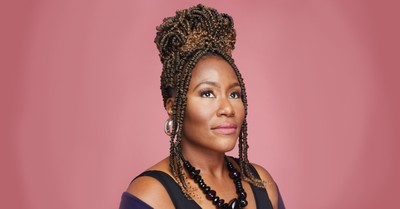If You Could Tell the Universe One Thing about Humanity, What Would You Share?
President Joe Biden and former President Donald Trump each won enough delegates last night to become the presumptive nominees of their parties. A vote is scheduled today in Congress that could lead to a US ban of TikTok. And the Wall Street Journal is reporting that Special Counsel Robert Hur’s testimony before lawmakers yesterday “accomplished a rare feat: Angering all sides of the political world.”
Meanwhile, I’d like to go a different direction this morning by asking: If you could tell the universe one thing about humanity, what would you share?
Powered by RedCircle
“A poem of Europa”
NASA is preparing its Europa Clipper spaceship for an October launch. Six years from now, after a 1.6-billion mile journey, it will begin orbiting Jupiter, making forty-nine close flybys of Europa to determine if the moon has conditions that could support life.
The craft will include a triangular metal plate on which is inscribed what one NASA official calls “the best humanity has to offer across the universe—science, technology, education, art, and math.” Biblical truth is apparently not included, which says something about what the agency considers humanity’s “best” knowledge.
However, an engraving of US Poet Laureate Ada Limón’s handwritten “In Praise of Mystery: A Poem of Europa” will make the flight. Her poem includes these lines:
We are creatures of constant awe,
curious at beauty, at leaf and blossom,
at grief and pleasure, sun and shadow. . . .O second moon, we too, are made
of water, of vast and beckoning seas.We, too, are made of wonders, of great
and ordinary loves, of small invisible worlds,
of a need to call out through the dark.
Limón is right: our “constant awe” shows that you and I are intended for more than the mundane. In fact, we were made to seek the One who made us. The good news is that when we “call out through the dark,” we can experience the Light.
The urgent news is that we have no other path to the purpose that gives our lives transcendent meaning.
“Continually improved means to carelessly examined ends”
The French philosopher Jacques Ellul wrote a book seventy years ago that could have been published yesterday. Titled The Technological Society, it is considered one of the most important works of the second half of the twentieth century. In it, Ellul explains how our technologically obsessed civilization has become, as the foreword states, “committed to the quest for continually improved means to carelessly examined ends.”
As Ellul argues so compellingly, modern society has commodified not just things but people. Everything—and everyone—is now a means to our personal ends. Even now, you’re tempted to read this article in hopes of profiting personally from it. I’m tempted to write it to profit personally from the fact that you’re reading it.
Here’s my point: our transactional culture tempts us to do the same with the living Lord Jesus.
Oswald Chambers warned: “Beware of an abandonment which has the commercial spirit in it. . . . We have got so commercialized that we only go to God for something from him, and not for himself.”
Instead, he urges us to choose “personal sovereign preference for Jesus Christ himself.”
When “holiness becomes attractive”
Yesterday, we noted that when we know Christ personally, we are compelled to share him publicly. Today, let’s add that this is because knowing the risen Lord of the universe personally must change us personally. The pattern is clear:
- The Gadarene demoniac threatened the people of his community (Mark 5:1–4), but after he encountered Jesus, he shared his new faith with them (v. 20).
- The Samaritan woman was shunned by her neighbors, but after she encountered Jesus, she shared her new faith with them (John 4:29).
- Peter denied knowing Christ, but after he met his risen Lord, he risked his life to share his new faith with the very people who ordered Jesus’ crucifixion.
- All of Jesus’ disciples except John abandoned him at the cross, but after they met their risen Lord, they sacrificed their lives to be his witnesses.
- Saul of Tarsus sought to kill Christians, but after he met the risen Christ, he joined his fellow believers in sharing Christ with the world.
Theologian D. A. Carson wrote:
When you are converted, you want to do what you didn’t want to do before, and you don’t want to do what you wanted to do before. There’s a change in the heart; there’s a cleaning up, a change in orientation.
With this result:
“Holiness becomes attractive, instead of something you have to put up with to figure out what you can get away with.”
Is holiness attractive to you today?
If not, why not?
Image credit: ©Getty Images / solarseven


















